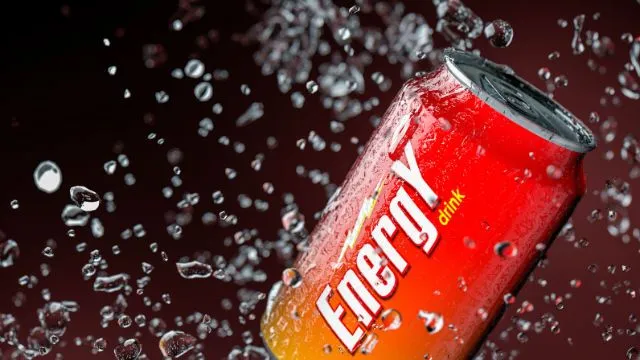
- Share on Facebook52
- Share on Pinterest
- Share on Twitter
Energy drinks may be especially harmful for children, according to a new study presented at the American Heart Association’s Scientific Sessions 2014.
Researchers found that 40 percent of the 5,156 calls to poison centers for “energy drink exposure” involved children under the age of six. In most cases, the parents didn’t realize their kids had gotten ahold of an energy drink. Many of the calls reported that kids were experiencing serious side effects, like abnormal heart rhythm or seizures.
The study also discovered that moderate to major outcomes were reported in 42 percent of cases involving energy drinks that had been mixed with alcohol, and in 19 percent of non alcohol-containing energy drinks. Among all cases across all age groups with major outcomes, cardiovascular effects were reported in 57 percent and neurologic effects like seizures were reported in 55 percent of the cases.
Steven Lipschultz, MD, the study’s senior author, professor and chair of pediatrics at Wayne State University and pediatrician-in-chief at Children’s Hospital of Michigan in Detroit, said that the disproportionate representation of children is concerning given the number of reports of serious cardiac and neurological symptoms.
Dr. Lipschultz has handled cases involving children who became sick after consuming energy drinks, and while studies about the impact of caffeine on children are limited, he said that adolescents can experience serious problems after drinking only 100 milligrams (mg) of caffeine, and that younger children would feel effects after drinking even less.
Some energy drinks contain more than 400 mg of caffeine, compared to 100 – 150 mg in a typical cup of coffee. In the case of energy drinks, pharmaceutical-grade caffeine often comes in combination with “natural” additives. Previous research has shown caffeine combinations may cause more problems for people.
The pharmaceutical-grade caffeine and additional caffeine from natural sources can cause the heart to race and blood pressure to increase. Energy drinks with multiple caffeine sources have been tied to a higher rate of side effects, typically involving the nervous, digestive or cardiovascular systems.
Lipschultz noted that caffeine poisoning can occur at levels higher than 400 mg a day in adults, above 100 mg a day in adolescents, and at 2.5 mg per 2.2 pounds of body weight in children younger than 12. He also pointed out that the reported data most likely represents just “the tip of the iceberg.”
 The researchers are calling for improved labeling of caffeine content and potential health consequences, as well as continued efforts to decrease children’s exposures to the products.
The researchers are calling for improved labeling of caffeine content and potential health consequences, as well as continued efforts to decrease children’s exposures to the products.
The American Academy of Pediatrics recommends that children consume no caffeine, but according to their research, nearly 73 percent of children do every day. The best way to keep them safe? Keep all your caffeinated foods and beverages out of reach, and as far as energy drinks, they might be better out of the home altogether.
-The Alternative Daily
Sources:
http://www.sciencedaily.com/releases/2014/11/141116094326.htm
http://pediatrics.aappublications.org/content/early/2014/02/04/peds.2013-2877.abstract
- Share on Facebook52
- Share on Pinterest
- Share on Twitter

